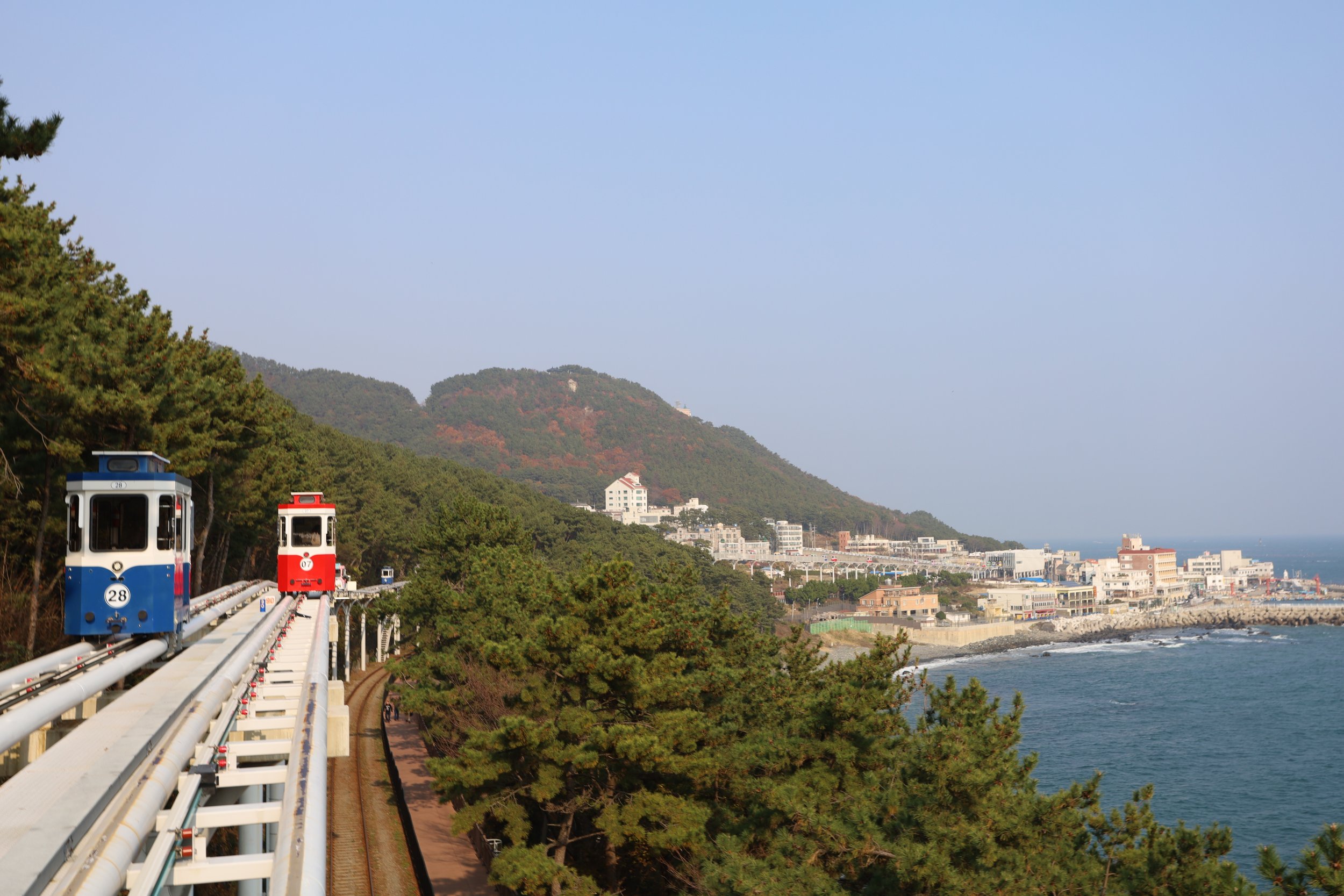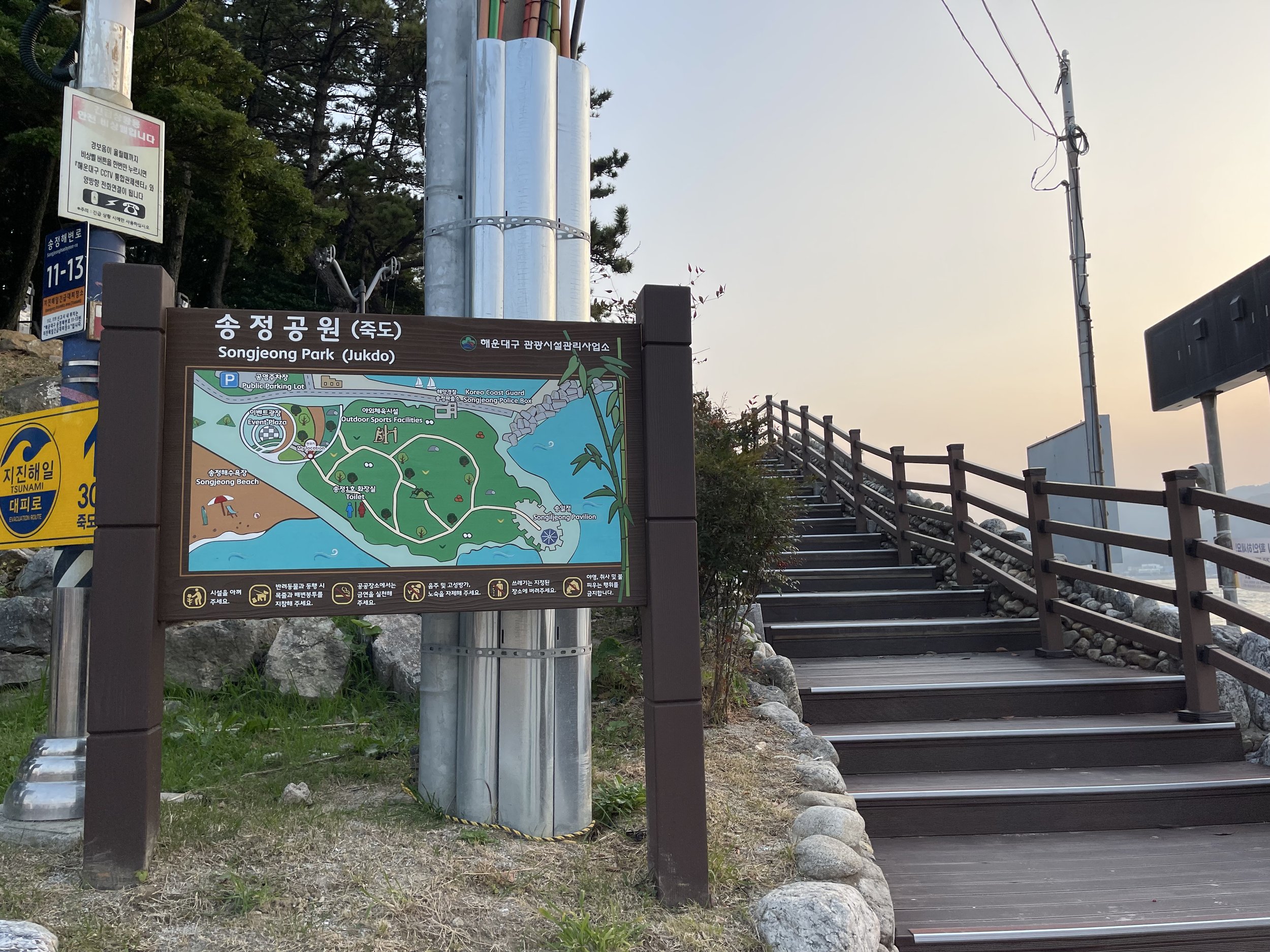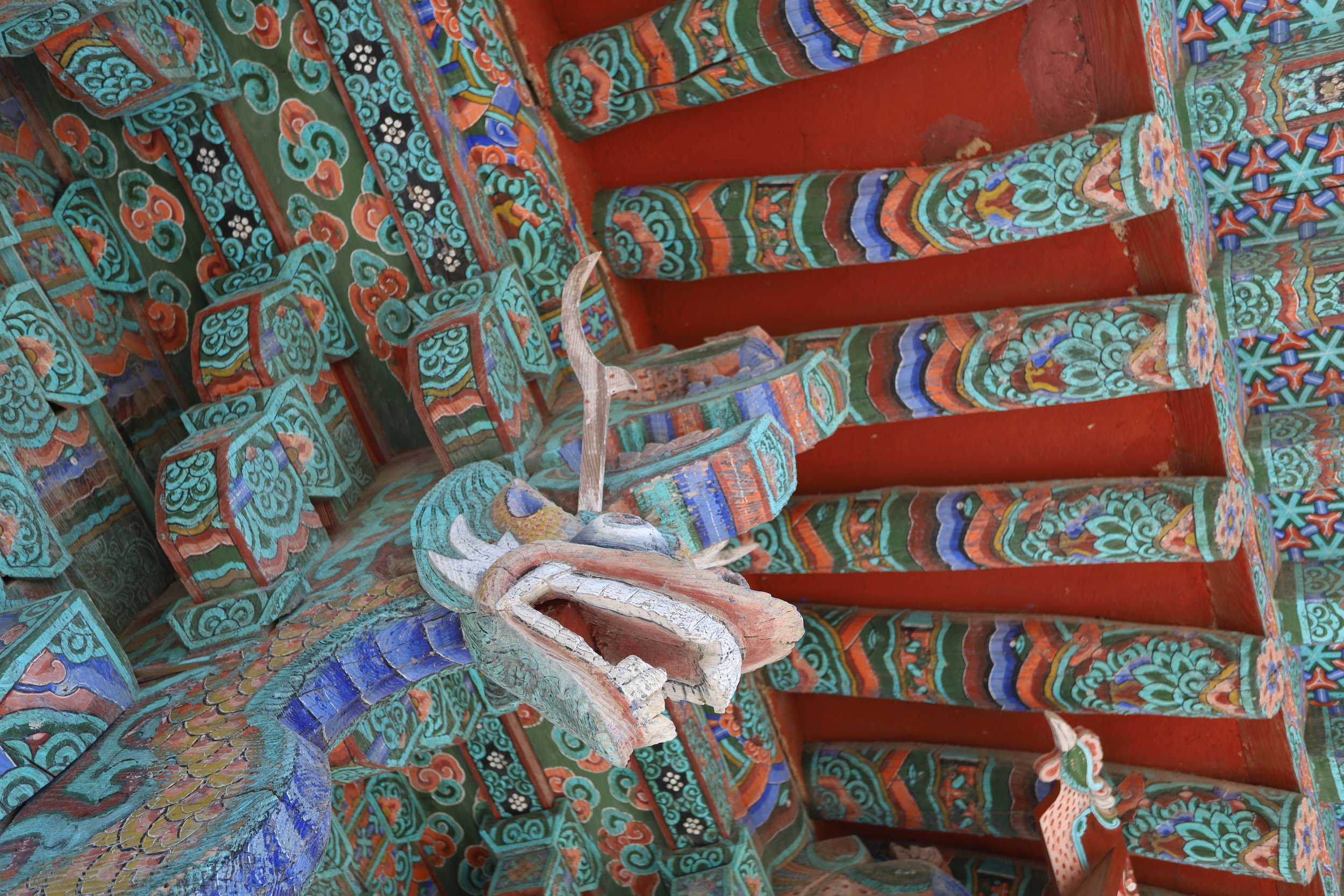Busan, Korea (Part 3 of 4)
Of sky capsules and ancient kingdoms
After a run in the morning, N. and I hopped on a bus to the Busan Citizens Park.
And of course, as soon as we arrived, N. informed me that the battery on his Canon camera was dead and that he had forgotten to bring spares — AGAIN. It’s a running argument between us. He says that he always has his phone, so what’s the big deal? I insist that he take pictures on the Canon as well, since phone pictures are no good to me later when I make photo books. Grrrrr.
It was nice to finally walk around trees — even if manicured — instead of around cars or buildings. On the way to a bathroom pitstop, we wandered into a free exhibit of Korean calligraphy, most of which were inspirational messages: “Happiness: A person is only as happy as they decide to be”; “Do not underestimate the value of ordinary things”; “The river does not change direction because of the wind.”
There were lots of other things going on in this park. We ran into a large group of senior citizens line dancing, and I was trying to decide whether to join them, when the leader announced, “Stay safe, ladies, and see you next week!” A short walk away led to the location of a time capsule to be opened in 100 years. N. and I also entered the garden maze, but I got frustrated and cut through the hedge in a spot that obviously many others before me had used to cheat as well.
It wasn’t until we arrived at a small museum that I learned that Busan Citizens Park actually had been Camp Hialeah — an army base for the 8th U.S. Army in Busan during World War II and, before that, the Japanese imperial military base when Japan was the colonial power in Korea.
This visit brought to mind a similar visit to Hoa Lo Prison (“Hanoi Hilton”): in both places, we felt the reach of history and American military might, but the usual picture we get from history books in the U.S. — that patriotic, slightly jingoistic version of “America spreading freedom and democracy around the world” — was tempered by a different perspective, a point of view from Asian people living at the mercy of stronger powers.
***
The morning dawned bright and clear, mercifully without wind. Thanksgiving Day far from home.
Last year, in the midst of van life, we had flown to Chicago to our daughter’s house where, if memory serves, amid the feast was one very raw chicken (not her fault). Still, even then, our little family had been able to gather together. Not this year. In Korea, it was just another Thursday.
Koreans had already celebrated the Full Moon Harvest Festival — their version of Thanksgiving — in late September. We were scheduled for a family call sometime the following morning, since we were 14 hours ahead of EST. So what to do today?
In a Thanksgiving-ish spirit, we walked to Haeundae Beach where a mixture of tourists and locals were enjoying the beautiful day. (Fact soon to be remedied: we have yet to dip our toes in the East Sea.) We made our way past the beach, past small alleys full of seafood restaurants and cafes, past a working marina, to the Mipo station of Blueline Park. Besides a boardwalk and slow train that spanned a few miles of the coastline, the park included little cable cars suspended on a monorail several feet above ground. It seemed like a touristy thing to do, but then again, what else were we?
While in the ticket line, we were accosted by the young woman waiting behind us. Her name was Wannie and she was a high school teacher of Malaysian Language in her native Singapore; she had just arrived in Busan the previous evening and was traveling solo, so would we be willing to share a Sky Capsule ride? We admired her bravery and initiative and had a soft spot for teachers; she was close to our daughter’s age.
While waiting for our timed ride, Wannie shared a few facts about life in Singapore:
— humidity in Singapore was a bane all year around; she herself was in Korea to escape it
— her Malay students had no interest in learning their native language; all they wanted was to learn English
— traveling was challenging since she required a Halal diet
It was a beautifully clear day for a seaside ride. The cute little cable cars made for lovely pictures against the backdrop of the sea and between pine trees. Too soon, we arrived at the last station and bid goodbye and good luck to Wannie.
***
When we look at a map of Korea, we can see that the country is basically one long peninsula and its coast is jagged, full of inlets and dotted by islands. One very Korean thing to do is go to any coast, find a coffee shop and enjoy drinks and desserts with a sea view. During these colder months, some shops even have blankets available for those who want to sit outside; these shops also have large rooms with floor-to-ceiling windows for the winter season. The coffee shop we visited made prominent a sign touting its winning an architectural award for its unique design.
We finished the day with a quick tour of Jukdo Park, where the sunset views were lovely and from where we caught sight of numerous surfers on Songjeong Beach who were taking advantage of the windy day — from where we were, with their wetsuits, they looked like a flock of crows on the beach.
***
One of my least favorite things about Korean Fishbowl Life is the fact that many apartments use harsh white fluorescent light, something that can easily be noticed as the sun sets and as families gather at home after work and school. As each unit turns on its lights in the buildings right outside our windows, I can see which ones use the harsh brightness that makes them look like shopping center displays — including ours.
We had one of these bright whites go out in the bathroom. It was covered by a large rectangular glass piece whose screws would not budge. Challenge One: how to undo these? And Challenge Two: where to buy replacement bulbs? We decided to ask the front desk crew which, as it usually turns out, was the panacea to all questions related to Fishbowl Life: all we had to do is file a request with the maintenance office. Just a few hours later, workers came and, presto, changed all dead bulbs. Wow.
I might move to Korea just for the maintenance crews.
***
One thing in Busan that is hard to miss is all the signs around the city about the Expo 2030: they are in every subway car, in every taxi, in every public building around town. “Busan is ready!”; “Busan Expo 2030”. At first, N. and I thought that the worldwide expo was taking place in Busan until we found that the decision had not yet been made, and that Busan was one of the finalist cities along with Rome and Riyadh. One taxi driver told us that the economy was suffering and that many were counting on the expo to spur some excitement and investment in the city.
So it was with anger and disappointment that Busanites woke up this morning to news that Saudi Arabia had won the bid to host Expo 2030. Comments on Korean social media were withering: Korean officials had falsely inflated citizens’ hopes on a hopeless project; officials had spent precious taxpayer money to travel around the world to compete with ‘oil money’ on a pathetic bid (results of the final vote: Saudi Arabia 119, Busan 29, Rome 17); what kind of result did citizens expect from a leader like “Yoon Kkang-tong?” Translation: the Korean president is Yoon Suk Yeol; “Kkang-tong” is the Korean derogatory term for an “empty can”). Ouchies.
***
Today a kind friend took us on a tour of Gyeongju National Park, site of the ancient capital of the Shillah Kingdom.
There were still some beautiful fall colors on display but the cold weather and biting wind made it impossible to linger, even with thick winter coats. We also made the drive up a tortuous mountain road to visit a temple where a Buddha figure had been carved into a grotto (sorry, no pictures allowed).
When we finally went indoors to a cafe around Gyeongju Bomun Lake, I was gratefully warm and warmly grateful.
***



















































